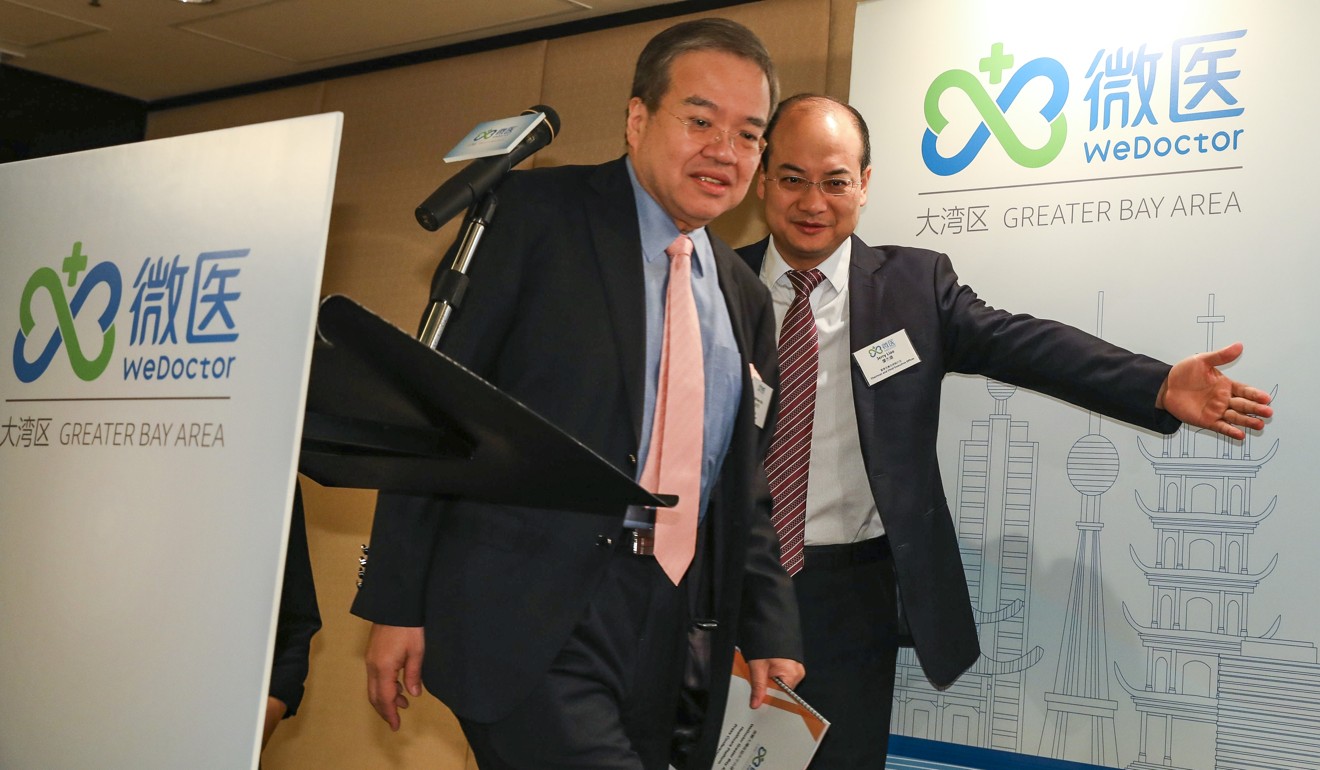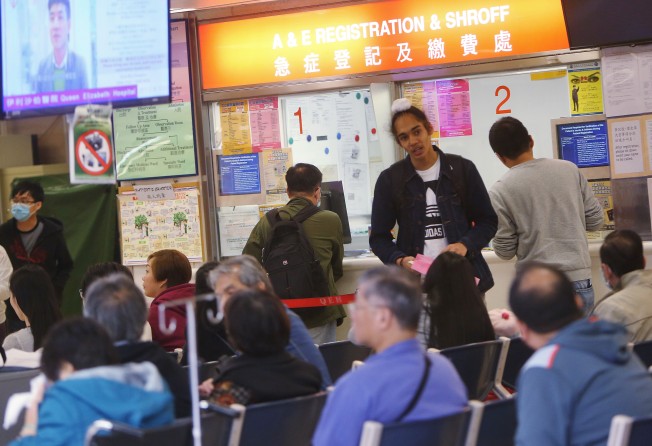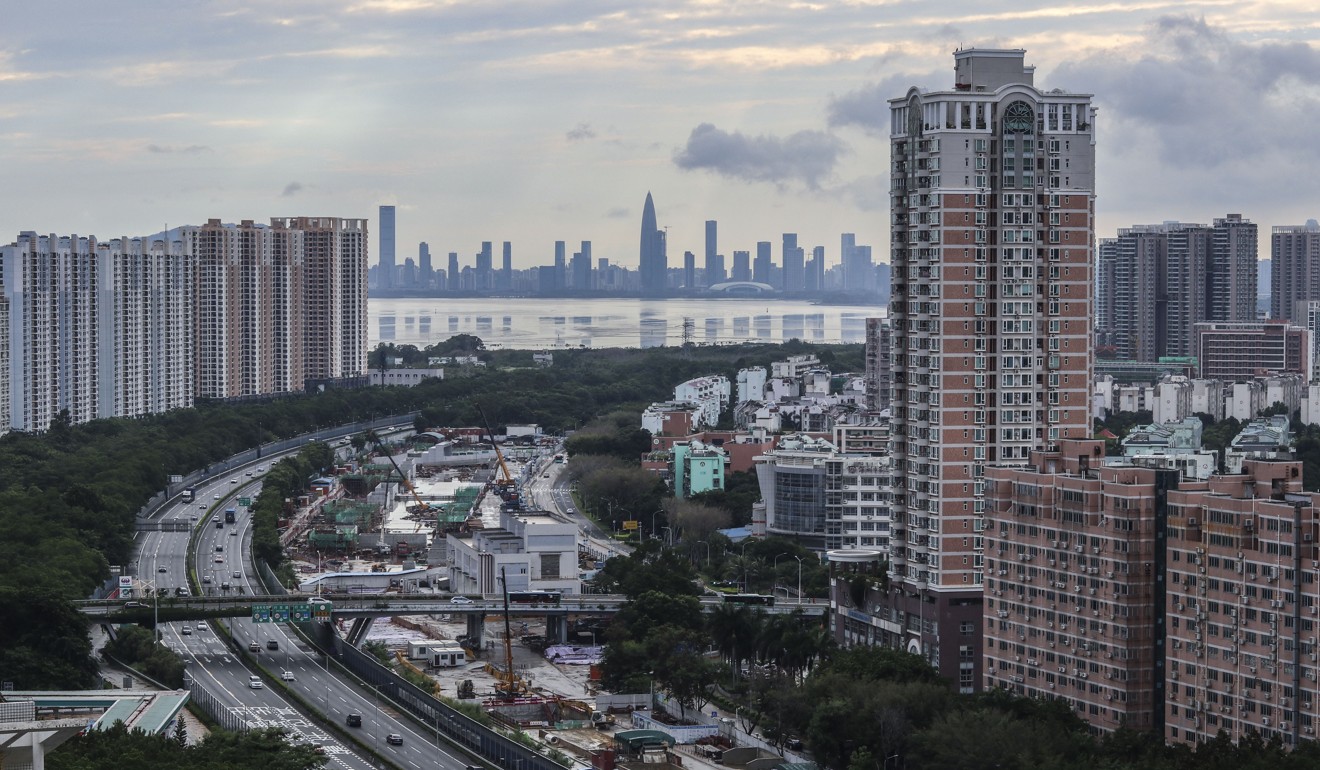
WeDoctor online medical services platform to get ‘Greater Bay Area’ section with 10,000 practitioners, but listing could prove legally tricky for Hong Kong providers
- Company, which is backed by tech giant Tencent, announces plans for expansion of existing site guahao.com
- Platform will serve Hong Kong, Macau and nine Guangdong cities, but legal risks may stop local doctors listing

A mainland Chinese company’s hopes of including Hong Kong medical service providers in a new platform created to serve cities in the “Greater Bay Area” may be easier said than done, according to local doctors.
Online medical solutions provider WeDoctor, backed by tech giant Tencent, announced on Friday plans for a new section on its platform guahao.com to serve Hong Kong, Macau and nine Guangdong cities. The Greater Bay Area is the central government’s scheme to link these cities into an integrated economic and business hub.
Users of the platform will be able to book appointments with practitioners of Western and Chinese medicine and have consultations over the phone or internet.

The group has not replied to the Post’s request for comment.
Hong Kong Medical Association vice-president Dr Ho Chung-ping warned local doctors that they could run into legal issues by listing on online platforms.
Under local regulations, doctors are not allowed to advertise their services. Ho said the implications were unclear.
“If a person from Beijing sees your name on the app and comes to see you in Hong Kong, does that count as advertising?” he said.
Ho also noted Hong Kong doctors were not allowed to practise on the mainland without a licence from there. It was unclear whether they could be violating the law by providing services remotely to mainland residents, he said.
Dr Donald Li Kwok-tung, president of the World Organisation of Family Doctors, said local doctors may not find it attractive to practise in the Greater Bay Area despite the new technology.
Because of differences between the medical systems, they might find it hard to overcome language issues and the management style, Li said.

But in the long run, Li believed that local doctors, especially those who specialise in family medicine, could contribute in the area through “partnerships” with mainland practitioners.
For example, they could go to manage, supervise or share knowledge with mainland clinics on a part-time basis, he said.
Speaking at a media briefing on Friday, former Hong Kong Hospital Authority chief Anthony Wu Ting-yuk, appointed by WeDoctor to lead the new platform, admitted it might be difficult for public hospitals in Hong Kong to get involved.
“Under the current system, I think it is not possible,” Wu said, as the city had its own system and regulations for medicine.
Wu, an accountant, served as authority chairman from 2004 to 2013. The authority manages all public hospitals in Hong Kong.
In Hong Kong, public hospitals take care of 90 per cent of the city’s inpatients while employing just 40 per cent of local doctors.
Because of the stretched services, patients complain of long waiting times for specialist clinics as well as emergency treatment.
But Wu said Hongkongers could now use the platform to book appointments with mainland clinics and cut waiting times.
“At public hospitals in Hong Kong, you may have to wait six months for a computed tomography [CT] scan or magnetic resonance imaging [MRI] … You can consider getting them done in Shenzhen,” Wu said.
WeDoctor CEO and chairman Jerry Liao Jieyuan said the platform would help patients find doctors who matched their needs.
The platform was expected to launch by the end of January.